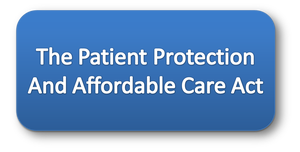
Election time in November represents promise and change. President Obama’s victory on November 6th means the 2010 Patient Protection and Affordable Care Act (PPACA) will live on for at least the next four years. Will it be a blessing or a curse for the pharmaceutical industry? What will his term in office generally mean for pharma? Will your vote change the landscape of our healthcare system?
Meant to improve access to health care for vulnerable populations, PPACA creates a larger pool of insureds and a potentially greater volume in drug sales. Good news for pharma, right?
The legislation is also geared to reduce public spending and provide rebates on drugs for seniors in the Medicare Part D coverage gap creating a decrease in profit margins. So PPACA is bad news?
Specialty pharmaceuticals tend to be extremely expensive and pressure to reduce spending will mean fewer formulas end up on the reimbursement list. This will surely boost sales of generics. Blessing?
It also means, to get on the approved list, pharma will have to prove their new drugs are indeed better than current available formulations. Curse?
The pharmaceutical and medical sectors of the US are important to our economy. They represent a large source of jobs, a significant component of our GDP, and they improve health contributing to our country’s overall productivity.
On the other hand, PPACA was born out of frustration with increasing drug and healthcare costs as well as inadequate coverage, quality and value in our medical system. Hmm.
Domestically, declining PPACA reimbursements and shrinking margins will force organizations to rethink their business models. Globally, simultaneous comparative effectiveness research and requirements for predictive care paths as well as increased focus on cost and clinical value will clearly change the marketplace.
Medical innovation and the delivery of medications in our country is at a crossroad. As PPACA brings new costs to an industry already strained by costs associated with increased regulations, will innovation become a risky prospect?
Or will this be it: a new period of growth and innovation as companies revamping their business models look for ways to either (or both) widely disperse common therapies as well as risk R&D dollars on targeting expensive rare disease and cancer therapies?
Time will tell.
So, is the PPACA a blessing or a curse and what does President Obama’s re-election mean for the pharmaceutical industry? The answers really are neither and not much. While the person who sits in the oval office shapes the policies of our country, ultimately, the challenges facing the pharmaceutical industry reach far beyond who is currently sitting in the White House.
As a constituency and an industry, we need to look at the challenges we face and decide upon the changes we want to see. As a self-governing democracy hatched from principals of working together, we need to remember, our input does not end after we cast our ballot.
(Sherry Dineen)
